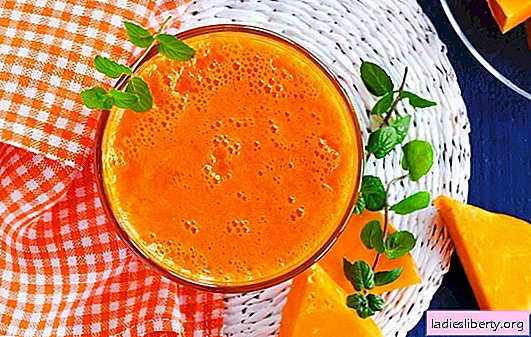
Sweet, canned corn is ready to eat and serves as a semi-finished product for a variety of dishes. It is tasty and healthy. It supports the body and helps to get rid of many diseases.
How composition and nutritional value explain the benefits of canned corn
Surprisingly, until now, no obvious wild-growing precursors of corn have been discovered, and if a person abandons caring for this plant, corn cannot survive, bear fruit without its support.
Corn is a leader among cereals along with wheat and rice, all its parts go into business - if not for food, then for livestock feed, for fertilizers, for the needs of the paper and pharmaceutical industries.
Corn played a decisive role in the development of America, supporting high yields and unpretentiousness of immigrants.
They make flour and bake bread, cakes and cookies. Prepare alcoholic drinks. From cereals boil porridge. First and second courses, appetizers and desserts (for example, popcorn) are prepared from grains.
And a huge amount of it is canned. In this form, it seems to many tastier than boiled, and in nutritional value, although inferior to steamed, it is not critical.
Moderate energy value, coupled with excellent digestible proteins, an abundance of amino acids and the so-called “slow” carbohydrates that provide the body with energy, and not an increase in centimeters in problem areas - all this makes canned corn an excellent product for a healthy diet.
And it completely compensates for such a drawback as a low protein content.
Speaking about corn, it is worthwhile to dwell in more detail on its two complex carbohydrates:
· Fiber stimulates the intestines, cleanses it of decay products and serves as food for probiotics, whose functions include maintaining microflora and the production of substances that prevent food allergic reactions. Since dietary fiber of corn belongs to a partially fermentable group, they contribute to lowering blood cholesterol;
· Starch is one of the best grades of "fuel" for the body, converted into glucose. Part of it immediately enters the bloodstream, part - in the form of glycogen, is stored in reserve, mainly in the liver, from where it is released when the blood sugar level drops below normal. Even corn starch is involved in the formation of organic acids.
Corn contains vitamins of group B (B2, B5, B9 and B6 are found the most), which are necessary for a healthy nervous system - from resistance to stress, to proper sleep and memorization, assimilation and analysis of new information.
Vitamin E is known as an antioxidant that can prolong youth and improve facial skin, serve as a defense against the negative manifestations of modern ecology. But it is also in demand for the respiration of cells and the process of their reproduction (on which the regenerative abilities of the body depend), protein processing and is mandatory for the prevention of atherosclerosis.
In addition, corn contains vitamins C, K and PP.
Of the number of trace elements, which include potassium, manganese, phosphorus and selenium, the highest content of corn in corn is magnesium, which is widely known for its beneficial properties for the cardiovascular system. But also, it is useful for the following:
· Blood supply to the kidneys and excretion of uric acid;
· Building bones and tooth enamel;
· Prevention of osteoporosis;
· Better absorption of vitamin D.
In what cases is the benefit of canned corn
To improve metabolism, it’s enough to eat only a few tablespoons of canned corn per week and do this regularly.
Corn helps not to feel heaviness in the stomach and nausea after a fatty meal, and also does not suffer from a hangover after a glass of wine at dinner.
By itself, it does not effectively increase hemoglobin, but, as a side dish to the same red meat, liver, it contributes to the digestibility of iron, so it can be recommended both for anemia itself and for the prevention of anemia.
In addition, regular use of canned corn contributes to:
· Prevention of sclerosis;
· Strengthening immunity;
· A surge of vitality and a sense of tone throughout the body;
· Cleansing the liver;
· Improving twilight vision and reducing eye fatigue with specific loads on them (for example, being behind a bright monitor in the dark, reading while lying down).
It is worth noting the benefits of canned corn for breathing. Not only does it strengthen them, corn also contributes to their adaptation in adverse conditions.
These include, for example, a trip to the mountains, where there is less oxygen with a vertical drop. Or being in a city whose air is saturated with substances that impede their work. Or intense physical exertion, at least running, in which breathing is easily lost, which is unacceptable to benefit from this activity.
In the field of women's health, corn is able to strengthen the body to stress during pregnancy and relieve symptoms, reduce the risk of complications during menopause.
How to choose in the store to eat canned corn with benefit
Canned grains, parts of the ears of ordinary plants and whole ears of dwarf varieties of corn. Yellow corn usually falls into the container, less often its exotic varieties with black or red grains. Their useful properties are equivalent.
According to GOST and the unwritten rules of good producers, for harvesting canned corn, in addition to itself, a fairly modest composition - water, salt and sugar. That's all that should be listed on the label.
The best quality is a product made in summer or autumn. If the packaging shows the winter month, it means that they were dried corn grains that were soaked in water, boiled and then canned.
Immediately unused corn should be transferred to glass, ceramic or plastic containers and stored in the refrigerator for no more than 48 hours.
The harm of canned corn
The delayed harm of canned corn with its excessive use is manifested in the fact that it may slow down the digestive tract.
If there are too many grains of poor quality, for example, made from dry raw materials, this can provoke harm from canned corn through fluid retention in the body, and as a result, the appearance or intensification of puffiness.
Unlike boiled ears, canned corn is not able to cause bloating, but with a tendency to flatulence, it is not recommended to use it in a mixture with products that provoke this disorder, for example, legumes.
It is recommended to limit the use of delicious grains so that there is no harm from canned corn, with the following diseases:
Ulcer, colitis and other inflammatory painful processes in the stomach or intestines;
Thrombophlebitis or thrombosis (corn can increase blood coagulation);
Severe exhaustion and reduced body weight, especially as a result of psychosomatic disorders (eg, anorexia). The fact is that in some people, corn in the process of an individual reaction can cause a decrease in appetite.











